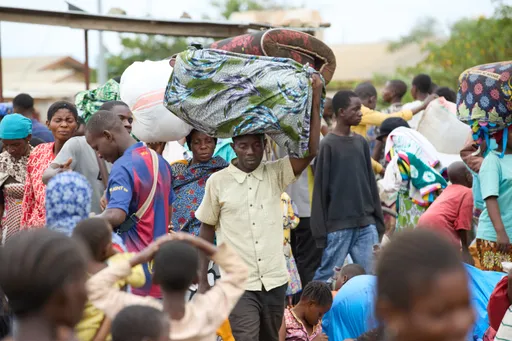By Dayo Yussuf
With nearly a million people displaced by recent floods in eastern Africa, the authorities in various countries are worried that waterborne diseases could claim more lives in worst-hit areas.
At least 300 people have died from the floods in Kenya alone and hundreds of others left injured, while close to half a million have been left homeless in the country.
The authorities are concerned about health implications as more people come into contact with flood waters amid difficulty to access clean water.
"There is a likelihood for increased illnesses associated with contaminated food," Abdourahmane Diallo, WHO representative in Kenya, said.
Kenya's government said the floods devastated vital infrastructure and overwhelmed urban drainage systems. Some 14 health facilities have been closed across the country and a major water treatment plant contaminated due to the flooding.
Experts warn that waterborne diseases will soon start manifesting if precaution is not taken.
"We must be agile and ready to respond, led by the government and along with the partners, to bring relief to hundreds and thousands of affected people," Mr Diallo said when he issued a warning in Kenya’s capital, Nairobi.
At least 50 people are reported to have contracted cholera in Kenya from the onset of the flooding, while hundreds of others are reported to be at risk of even more diseases.
Key facts about Cholera : (WHO)
• Cholera is an acute diarrhoeal disease that can kill within hours if left untreated.
• Researchers have estimated that each year there are 1.3 to 4.0 million cases of cholera, and 21 000 to 143 000 deaths worldwide due to cholera.
• About 10% of cases show severe symptoms including diarrhea and dehydration.
• Severe cases need rapid treatment with intravenous fluids and antibiotics.
• Provision of safe water and basic sanitation, and hygiene practices is critical to prevent and control the transmission of cholera and other waterborne diseases.
• Oral cholera vaccines should be used in conjunction with improvements in water and sanitation to control cholera outbreaks and for prevention in areas known to be high risk for cholera.
Other illnesses that can be caused by ingesting contaminated water or foods include Hepatitis-A, typhoid and dysentry, while shigellosis can also be spread through contact with an infected person.
Symptoms include fever, malaise, nausea, vomiting, diarrhoea, abdominal discomfort, dark urine and jaundice.
The WHO has urged people living in areas affected by floods to ensure food safety through proper cooking, better storage and enhanced personal hygiene practices.
But health risks at these times go beyond what you put in your mouth. Your surrounding could also cause illnesses.
Experts warn that the displacement of people and overcrowding in shelters and camps cause breeding and spreading of viruses that cause respiratory illnesses as well.
The most common respiratory diseases during floods are allergic bronchitis, asthma, chronic obstructive pulmonary disease, pneumonia, and viral influenza
These diseases are easily exacerbated or even passed from one person to another especially where there is poor ventilation and congested spaces.
According to Kenyan authorities, 41 out of the country's 47 counties are affected by the floods, causing hundreds of thousands to flee to safer areas. Majority are seeking shelter in schools and churches.
There is also the danger of diseases that usually spread through contact with animals and insects that seem to thrive in such weather, experts warn.
These include Malaria, Rift Valley fever, West Nile Fever and Leptospirosis. They are increasingly recognised as infections associated with flood disasters.
These diseases are caused by bites from mosquitos, rodents, domestic pets or even livestock.
Common symptoms include fever, sweats, cold shivers, headache, muscle or joint aches, malaise, loss of appetite, nausea and vomiting.
But experts have also cautioned parents to be on the lookout for complications in their children's mental health during or even long after the floods are gone.
According to the Kenya Red Cross Society, images of devastation, destruction or even deaths caused by the floods could have long term effect on children.
‘’During natural disasters like what the country is experiencing, children often experience a range of emotions such as fear, confusion, and anxiety,’’ the Kenya Red Cross Society posted on X, formerly twitter.
‘’Counselling plays a crucial role in helping them navigate these feelings and understand the situation better,’’ the Red Cross advises.
The Kenya meteorological department forecasts continued downpour in the coming weeks, threatening even more lives with floods and diseases. But this is not only in Kenya.
About a million people have been displaced by floods in Burundi, Kenya, Rwanda, Somalia, Ethiopia and Tanzania, the UN Office for the Coordination of Humanitarian Affairs said, adding the numbers are on the rise as rains intensify.
So as people keep safe during the floods, experts advise them to prepare for what may come afterwards which may have even more devastating effects.
























